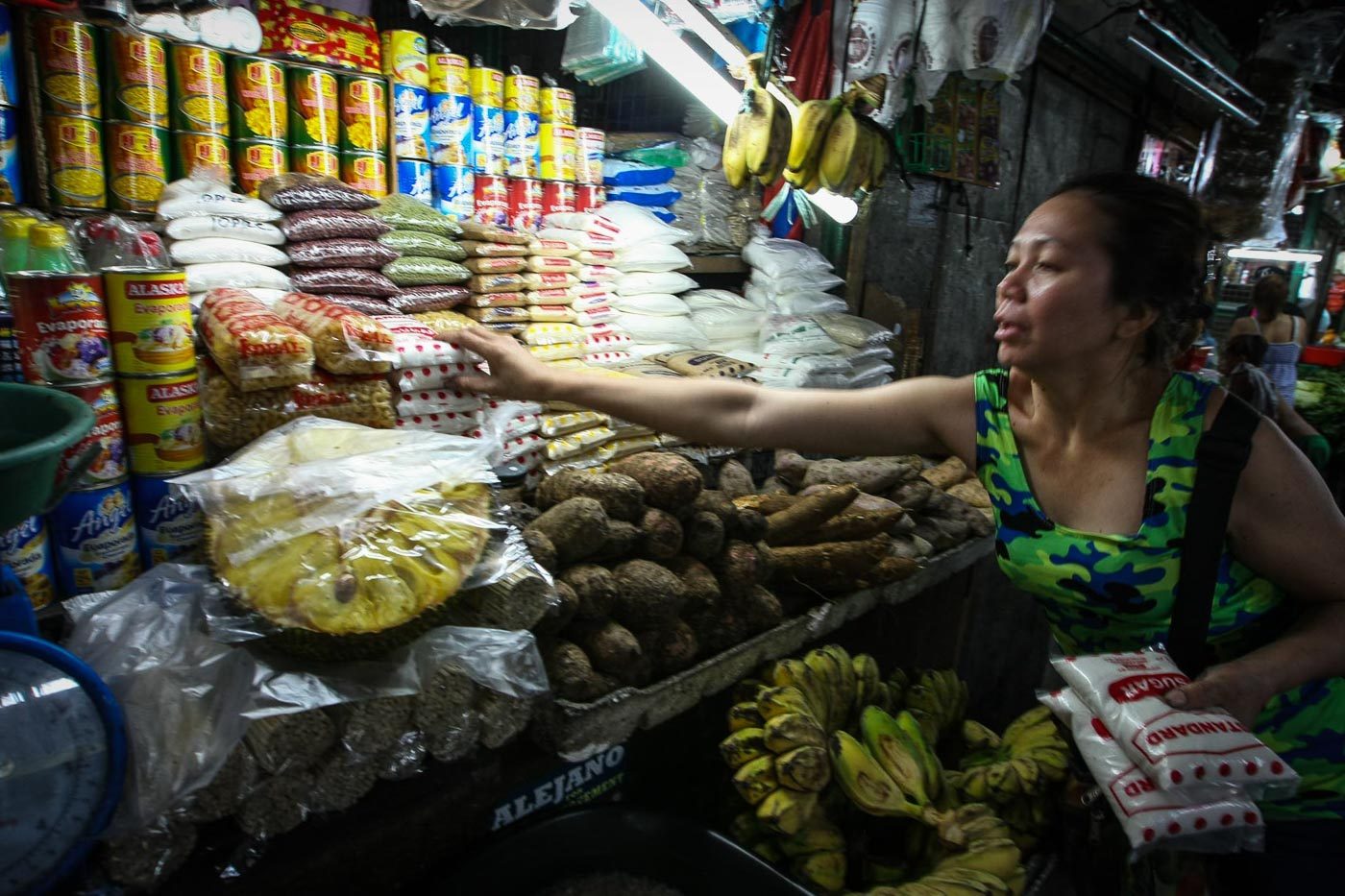SUMMARY
This is AI generated summarization, which may have errors. For context, always refer to the full article.

MANILA, Philippines – A labor group said on Saturday, July 14, that President Rodrigo Duterte should “determine and adjust” wage rates as rising inflation has diminished the purchasing power of workers.
Citing research, Associated Labor Unions-Trade Union Congress of the Philippines (ALU-TUCP) said that the average minimum wage in the non-agricultural sector across all regions amount to P330.47 daily in April, but the actual purchasing power of Filipinos is only P208.38.
This means that the salary of a Filipino who earns P9,914.10 for 30 days given the average minimum wage is only worth P6,251.40.
In comparison, ALU-TUCP said that the average minimum wage among regions in October 2017 was at P327 a day. Purchasing power was at P212.45, or P4.07 more than the April figure.
Inflation in April was at 4.5%, a full percentage point higher than the October 2017 rate of 3.5%.
According to the labor group, Metro Manila experienced the fastest and biggest erosion rate of purchasing power.
In October 2017, the buying power of the P512 minimum wage is at P362.80. Come April, buying power declined by P10.76 at P352.13 – P6.69 lower than the average.
Higher wages
Labor groups have since lobbied for a higher minimum wage due to higher prices. The Department of Labor and Employment in late May said it will study a possible hike given the current situation.
Based on Republic Act No. 6727 or the Wage Rationalization Act, each region in the Philippines has a unique minimum wage set by the Regional Tripartite Wages and Productivity Boards (RTWPBs) based on the poverty threshold, employment rate, and cost of living specific to the region.
Under the law, wage orders determine the level of the minimum wage within a period of 12 months. But other regions can also issue new wage orders on the basis of a supervening event such as rising prices of goods, oil, and transportation fares among others.
In the case of ALU-TUCP, the labor group wants the President to intervene.
“Due to supervening conditions, President Duterte must take jurisdiction over the wage boards and, as the Chief Executive, determine and adjust the wage rates. At the same time, the government must help in improving the salary of workers by giving a social safety net program,” Tanjusay said.
“By virtue of extraordinary of the rise of inflation, Mr Duterte must make decisions to help lift the lives of workers from poverty,” he added.
The Makabayan bloc in the House of Representatives filed a bill seeking a P750-daily national minimum wage for workers in May, and the abolition of RTWPBs.
Back in September 2016, Labor Secretary Silvestre Bello III said the government is considering a national minimum wage law which would adjust minimum salaries comparable to Metro Manila. (READ: Is it time for a national minimum wage?)
Inflation hit another fresh high at 5.2% in June. The government’s inflation target range for 2018 is between 2% and 4%.
Economic managers claimed the month-on-month inflation rates have been “going down” in the past months, and that they expectes prices to normalize by the second half of 2018. – Rappler.com
Add a comment
How does this make you feel?
There are no comments yet. Add your comment to start the conversation.